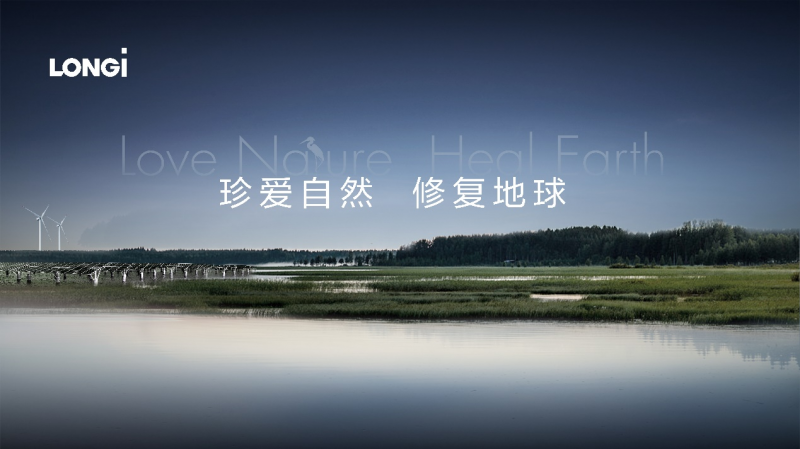PVTIME – The 14th Meeting of the Conference of the Contracting Parties to the Ramsar Convention on Wetlands (COP14) was held simultaneously in Wuhan, China, and Geneva, Switzerland, from November 5 to 13.
On November 8, Ni Jiujian, Vice President of System Solutions Department, LONGi, virtually attended the COP14 “Diversity Conservation and Sustainable Development of Wetland Plants,” a sideline meeting, and delivered a keynote speech, offering insights and suggestions on wetland protection and restoration.

This year marks the 30th anniversary of China’s accession to the Ramsar Convention on Wetlands, and it is the first time for China to host this international event on wetland conservation. The Contracting Parties to the Ramsar Convention on Wetlands (COP14), centering on the theme “Wetlands Action for People and Nature”, have made important accomplishments such as the strategic framework for the implementation of the Wuhan Declaration, and helped achieve the 2030 Sustainable Development Goals of the United Nations.
In his keynote address titled “Photovoltaics Promote Ecological Protection and Build A Zero Carbon Future”, Ni Jiujian noted that biodiversity has been under severe threat for the past 50 years. The main reason for this challenge can be attributed to the massive use of fossil fuels, so it is vital to find alternative energy sources urgently. According to the data from the Energy Research Institute (ERI) of the National Development and Reform Commission (NDRC), in the next 30 years, photovoltaic power will be the energy source with the lowest electricity cost in various forms of power generation. The International Renewable Energy Agency (IREA) also predicted that the installed capacity of photovoltaics in 2050 will account for about 50% of the installed capacity of all power sources, up 24 times the installed capacity in 2018.
“In addition to being cost-effective, photovoltaic also adheres to also coexisting in harmony with nature, ” Ni Jiujian said, adding that photovoltaic power generation can be combined with agriculture and forestry to achieve dual benefits. The combination of photovoltaic and roof can promote the reproduction of insects and birds and foster biodiversity. Photovoltaic power stations built in areas with sparse vegetation can provide habitats for pollen-borne organisms and promote the growth and reproduction of plants. The floating photovoltaic power station may play a role in promoting marine biodiversity.
Ni Jiujian emphasized that photovoltaic is a low-cost and environment-friendly form of power generation. LONGi’s photovoltaic products and solutions have achieved excellent results in various scenarios and can be perfectly combined with fishery, agriculture, transportation, industrial and commercial roofs. They can also be utilized in the coastal waters and the desert wasteland, achieving the goal of restoring ecology and promoting biodiversity.











